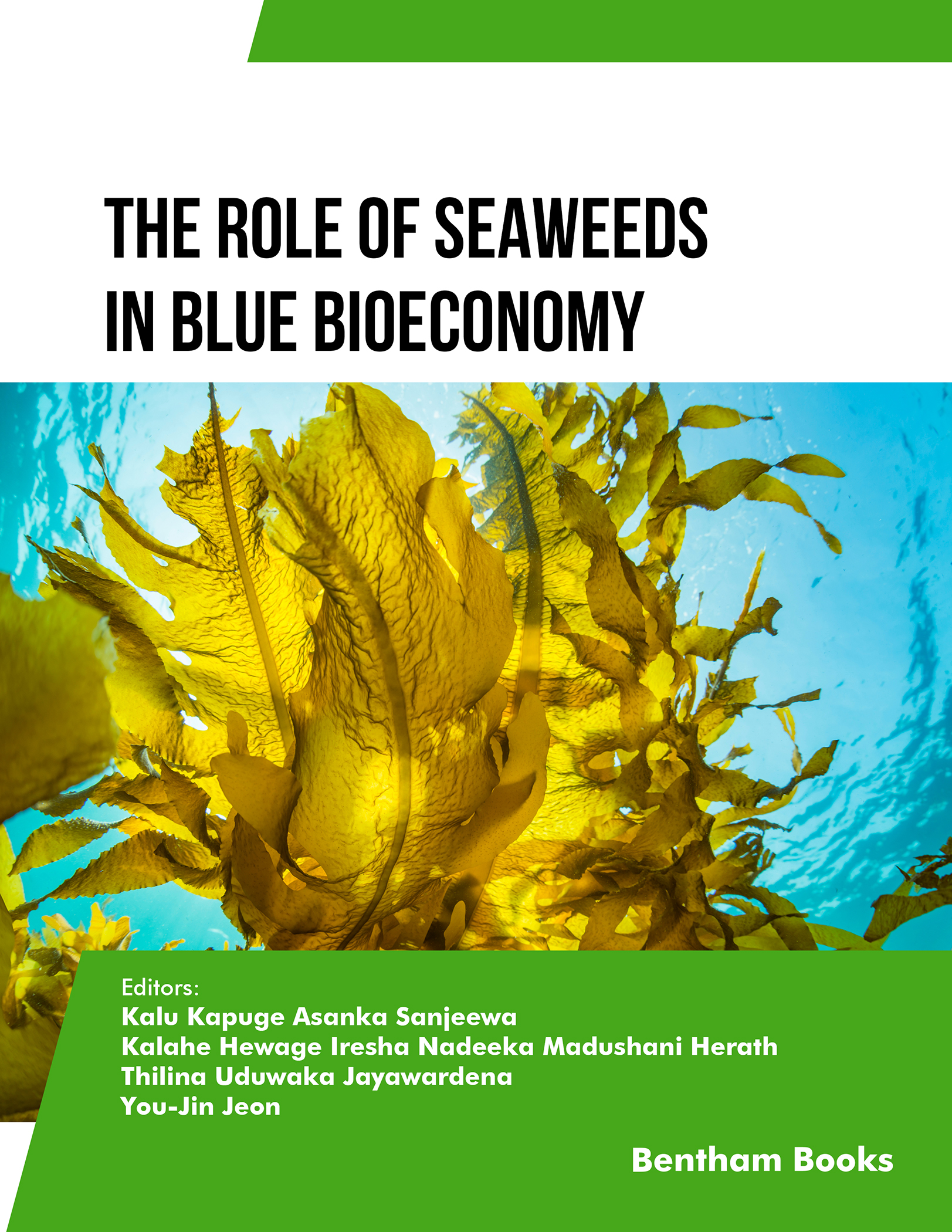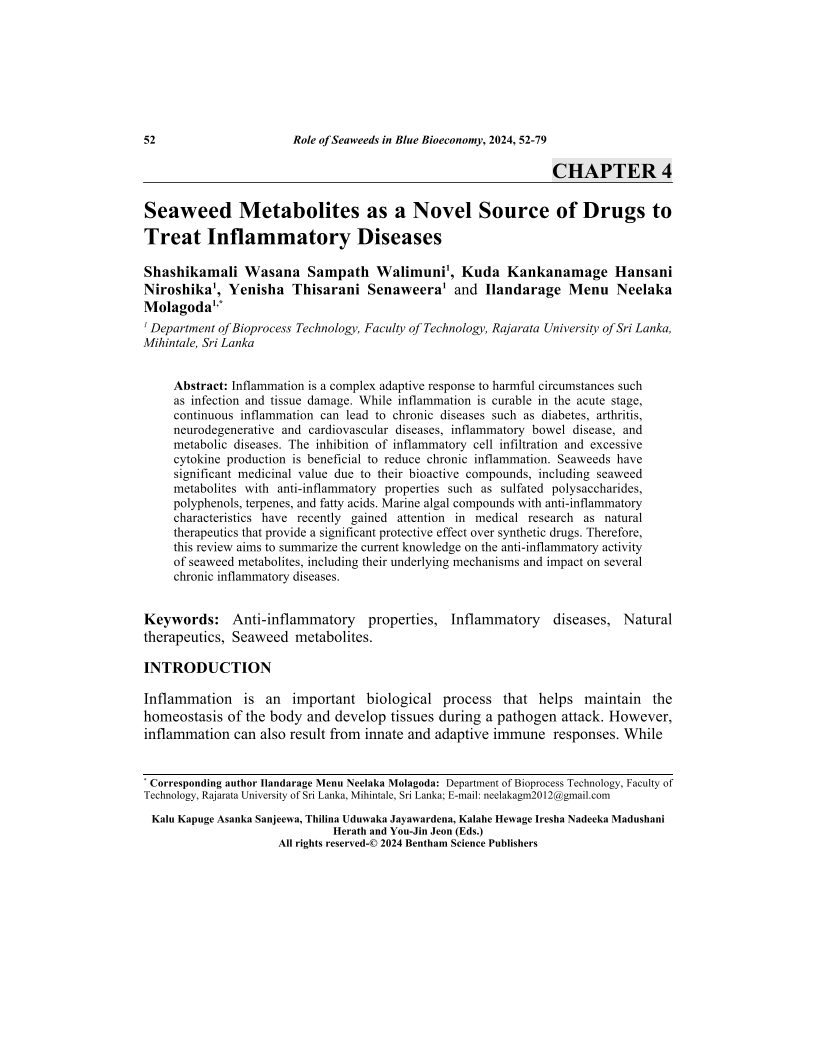Seaweed Metabolites as a Novel Source of Drugs to Treat Inflammatory Diseases

- Authors: Shashikamali Wasana Sampath Walimuni1, Kuda Kankanamage Hansani Niroshika2, Yenisha Thisarani Senaweera3, Ilandarage Menu Neelaka Molagoda4
-
View Affiliations Hide Affiliations1 Department of Bioprocess Technology, Faculty of Technology, Rajarata University of Sri Lanka, Mihintale, Sri Lanka 2 Department of Bioprocess Technology, Faculty of Technology, Rajarata University of Sri Lanka, Mihintale, Sri Lanka 3 Department of Bioprocess Technology, Faculty of Technology, Rajarata University of Sri Lanka, Mihintale, Sri Lanka 4 Department of Bioprocess Technology, Faculty of Technology, Rajarata University of Sri Lanka, Mihintale, Sri Lanka
- Source: The Role of Seaweeds in Blue Bioeconomy , pp 52-79
- Publication Date: May 2024
- Language: English
Seaweed Metabolites as a Novel Source of Drugs to Treat Inflammatory Diseases, Page 1 of 1
< Previous page | Next page > /docserver/preview/fulltext/9789815223644/chapter-4-1.gif
Inflammation is a complex adaptive response to harmful circumstances such as infection and tissue damage. While inflammation is curable in the acute stage, continuous inflammation can lead to chronic diseases such as diabetes, arthritis, neurodegenerative and cardiovascular diseases, inflammatory bowel disease, and metabolic diseases. The inhibition of inflammatory cell infiltration and excessive cytokine production is beneficial to reduce chronic inflammation. Seaweeds have significant medicinal value due to their bioactive compounds, including seaweed metabolites with anti-inflammatory properties such as sulfated polysaccharides, polyphenols, terpenes, and fatty acids. Marine algal compounds with anti-inflammatory characteristics have recently gained attention in medical research as natural therapeutics that provide a significant protective effect over synthetic drugs. Therefore, this review aims to summarize the current knowledge on the anti-inflammatory activity of seaweed metabolites, including their underlying mechanisms and impact on several chronic inflammatory diseases.
-
From This Site
/content/books/9789815223644.chapter-4dcterms_subject,pub_keyword-contentType:Journal -contentType:Figure -contentType:Table -contentType:SupplementaryData105

